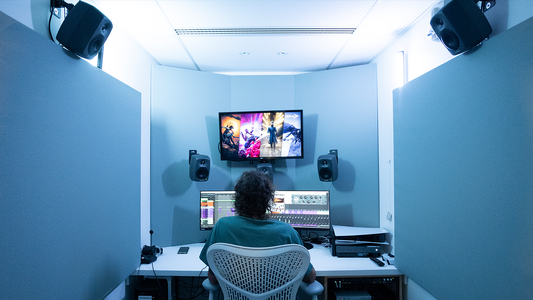 I've said this before, but in the wake of the viral success of Pokémon GO, it needs to be said again. Augmented reality is just a virtual world, an MMO, a MUD even, with all of the same design issues, plus a few new ones.
I've said this before, but in the wake of the viral success of Pokémon GO, it needs to be said again. Augmented reality is just a virtual world, an MMO, a MUD even, with all of the same design issues, plus a few new ones.
The goggles fallacy
To some, particularly vets of online worlds of various stripes, this may seem obvious. But most days, it feels like the average person working in social VR, AR, and the like, is ignorant of this. It's evident in the very large pile of past lessons they are failing to heed in their designs.
But then there are also those who see these experiences as somehow qualitatively different. The commonest argument given is what I call "the goggles fallacy." Goggles or phones, as Pokémon GO is demonstrating, are just clients. A VR headset is also just a client. And as I've argued exhaustively before, clients are not the part that determines whether something is a virtual world. I'll use MMO as the base term here, as it's shorter to type and what people are currently most familiar with.
World of Warcraft has a server that simulates space. It uses a map that is based on something made up.
Pokémon GO has a server that simulates space. It uses a map that is based on the real world.
WoW has a server that tracks individual connected clients and positions them spatially on that map.
So does Pokémon GO.
WoW has little AI spawns you can interact with.
So does Pokémon GO.
In fact, if you compare the two servers, aside from the data set, they likely do the same thing across the board.
Proponents of the idea that the client matters more usually bring up questions around immersiveness, around visceral gut reactions, around ineffable sense of presence -- perhaps forgetting that as originally coined, the notion of "telepresence" was achieved with pretty crude hardware. MMOs, mirror worlds, augmented reality, lifelogging, and son are all intimately related and use the same core tech. I know the makers of Pokémon GO know this, because their CEO was involved in Meridian 59, one of the earliest MMOs, as well as in Keyhole, one of the first major mirror worlds, which became Google Earth.
 You are the client
You are the client

With smartphones, we tend to think of "the client" as meaning the little screen we stare through to catch a Pokémon. But that's not accurate. Take a look at the list of permissions that the game asks for. That's not a self-contained app. That's your whole life. You are fully an avatar. Pokémon has your email, and can send emails for you. Pokémon knows everywhere you walk. Pokémon can connect to your car. Pokémon knows who your friends are.
You are the client. You are the avatar. Your real life is what is being used for your friends list, location, chat system... all those things that you used to think of as packaged up behind an avatar, a false front. Sure, the fact is that smartphones have been gradually eating all your privacy and you've cheerfully given it up in order to get better directions and nifty alerts about traffic and so on. So this has been happening for a while. And yet.
The old adage is "never trust the client." So a big first question is "can you be trusted, since you are the client?"
The answer is probably no. For example, there are no doubt thousands of people downloading the backdoored Pokémon GO app that takes complete remote control of your phone.
But that's only the start of not trusting...
 A user-generated world
A user-generated world

The Pokémon GO database is basically a replicated version of the Ingress database, the previous game by Niantic. And said database was heavily crowdsourced. This has already led some enterprising players to wonder aloud whether they can use Ingress play to affect the locations of Pokéstops or gyms in Pokémon GO. It's also led to complaints that rural areas are Pokémon deserts, because Ingress players never built up the database entries in those locations.
However, it's also led to some artifacts that are very familiar. Here's a guy who lives in a building that Ingress players (presumably) labeled as a Pokémon GO gym. What are the implications here? Aside from the very real risk of constant home invasions, we're seeing a game AR layer used to directly affect home value and livability, outside of the owner's control. Some are seeing this as a benefit, as in the examples of real estate listings using Pokémon GO data as a value-add. Others, who have reported a dozen people in their backyard at 2am, are less happy.
What is the fruition of this? Long ago, in Star Wars Galaxies, we allowed players to freely build homes and even cities, anywhere on the map that wasn't explicitly disallowed. Cities allowed players to set rules about who could attack other players within their borders. A few sneaky players set up their cities surrounding or even directly on top of designer-created content, and then started extorting players who wanted to visit that content -- or just killing them, in the game. (You can't kill another player in Pokémon GO, but... you are the client. We'll get back to that in a second).
 Affecting the real world economy
Affecting the real world economy

So here we are affecting the livability of real estate. But Pokémon GO might also need to take heed of the lessons from managing game economies in MMOs as well. We learned through some very painful lessons exactly how powerful our control of the economy was pretty early on in MMOs, after some big mistakes. Like, that one time we accidentally created an entire secondary market and exchange rate between real world money and digital assets, oops. Surely that can't happen with Pokémon , can it?
Well, actually... we're already seeing coffee shops advertising discounts for those who happen to be on specific Pokémon GO teams, and today there was a Forbes article giving business advice about how to leverage the game layer for more customers. Make no mistake, these are the first steps towards real-money trade, and are another way in which the game is affecting the economy. There has already been discussion of how there will be Pokémon trading; expect this to spill over into real world effects immediately. After all, Randy Farmer laid it out very clearly back in 2004:
So, the steps on the virtual economy slippery slope are:
Gifting → Twinking
Gifting + Multiple Chars/Server → Muling
- <


































